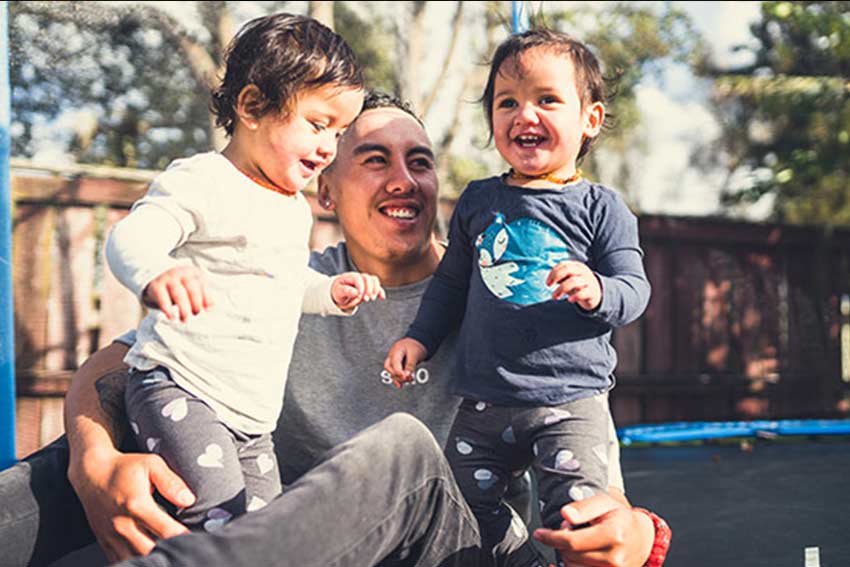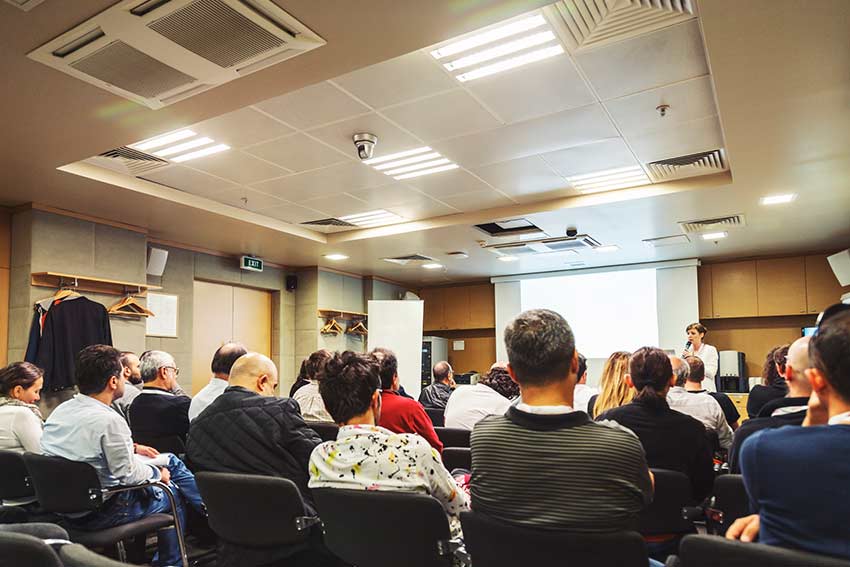Implementing a Child Welfare Decision Aide in Douglas County: Methodology Report

December-2019
This report summarises the development and implementation of the Douglas County Decision Aide (DCDA), a child welfare predictive risk-modelling tool built and deployed by the Centre for Social Data Analytics. The DCDA is intended to support call screening of child maltreatment referrals made to the Douglas County Department of Human Services (CO, United States). The methodology outlines how Douglas County was triaging referrals prior to the deployment of the DCDA and how the DCDA has changed that, as well as details of how the DCDA tool was built and validated and how ethical concerns were identified and responded to.
Citation:
Vaithianathan, R., Dinh, H., Kalisher, A., Kithulgoda, C. I., Kulick, E., Mayur, M., … Putnam-Hornstein, E. (December 2019). Implementing a Child Welfare Decision Aide in Douglas County: Methodology Report. Centre for Social Data Analytics.
Related Projects:
Douglas County Decision Aide
Exploring the protective factors of children and families identified at highest risk of adverse childhood experiences by a predictive risk model: An analysis of the Growing Up in New Zealand cohort

December-2019
The authors explore what protective factors might exist for the families of children identified by a predictive risk model as at high risk of experiencing adverse childhood experiences. Identifying protective factors is an important step in designing preventive services for families as well as helping social workers take a strengths-based approach to these families. The authors identify 56 factors associated with protective effects against adversities and find that a positive mother-partner relationship helps children at risk of adversities.
Citation:
Walsh, M. C., Joyce, S., Maloney, T., & Vaithianathan, R. (2019). Exploring the Protective Factors of Children and Families Identified at Highest Risk of Adverse Childhood Experiences by a Predictive Risk Model: An Analysis of the Growing up in New Zealand Cohort. Children and Youth Services Review, 104556.
Related Projects:
Adverse Childhood Experiences, Protective Factors and School Readiness
Indigenous voices on measuring and valuing health states

November-2019
This article sets out to start a conversation around what an Indigenous measure of health might look like and how it might value key dimensions of health. Within a Kaupapa Māori theoretical paradigm, in-depth interviews were conducted with six Māori key informants who had cared for whānau (family) members through illness to give voice to dimensions of health and illness that Western economic measures of health fail to capture.
Citation:
Willing, E., Paine, S. J., Wyeth, E., Te Ao, B., Vaithianathan, R., & Reid, P. (2019). Indigenous voices on measuring and valuing health states. AlterNative: An International Journal of Indigenous Peoples, 1177180119885418.
Ethnic Disparities in Childhood Prevalence of Maltreatment: Evidence from a New Zealand Birth Cohort

July-2019
This article co-authored by Rhema Vaithianathan and Benedicte Rouland (CSDA research fellow 2016-2018) aims to document ethnic disparities in childhood abuse and neglect among New Zealand children. By following the 1998 New Zealand birth cohort of 56,904 children through 2016, the authors identify substantial ethnic differences in child maltreatment and child protection involvement. They find that despite long-standing child support policies and reparation for breaches of Indigenous people’s rights, significant child maltreatment disparities persist.
Citation:
Rouland, B., Vaithianathan, R., Wilson, D., & Putnam-Hornstein, E. (2019). Ethnic Disparities in Childhood Prevalence of Maltreatment: Evidence From a New Zealand Birth Cohort. Am J Public Health.
Related Project:
Ethnic Disparities in Child Protection
Adverse childhood experiences and school readiness outcomes: Results from the GUiNZ study

April-2019
This report describes using Growing Up in New Zealand (GUiNZ) survey instruments to create a measurement of adverse child experiences (ACEs) and correlates this measurement with school readiness outcomes. Statistically significant associations were found between a child’s experience of ACEs and their performance in cognitive tests administered at 54 months. This study was authored by Matthew Walsh, Sophie Joyce, Tim Maloney and Rhema Vaithianathan and funded by the Children and Families Research Fund (Ministry of Social Development, NZ).
Citation:
Walsh, M. C., Maloney, T., Vaithianathan, R., & Joyce, S. (2019). Adverse childhood experiences and school readiness outcomes: Results from the Growing up in New Zealand study. Wellington: Ministry of Social Development.
Related Projects:
Adverse Childhood Experiences, Protective Factors and School Readiness
Protective factors of children and families at highest risk of adverse childhood experiences: An analysis of children and families in the Growing up in New Zealand data who “beat the odds”

April-2019
With increasing access to integrated administrative data, it is easy to identify infants who are likely to suffer childhood adversities. However, many infants who appear “at risk” end up thriving - experiencing few of the adversities that beset other children with similar risk factors. Understanding what helps children “beat the odds” is important for policymakers and frontline services that want to help families at risk. This report authored by Matthew Walsh, Tim Maloney (CSDA co-director 2016-2019), Rhema Vaithianathan and Sophie Joyce analyses the Growing Up in New Zealand (GUiNZ) birth cohort to identify protective factors for at-risk children who “beat the odds”.
Citation:
Walsh, M. C., Maloney, T., Vaithianathan, R., & Joyce, S. (2019). Protective factors of children and families at highest risk of adverse childhood experiences: An analysis of children and families in the Growing up in New Zealand data who "beat the odds". Wellington: Ministry of Social Development.
Related Projects:
Adverse Childhood Experiences, Protective Factors and School Readiness
Adverse childhood experiences and school readiness outcomes: Results from the Growing up in New Zealand study

April-2019
The Center for Disease Control’s (CDC) Adverse Childhood Experiences (ACEs) have been associated with adverse health consequences in adults and children, but less is known about any association between ACEs and early learning skills. Researchers Matthew Walsh, Sophie Joyce, Tim Maloney and Rhema Vaithianathan investigated the relationship between ACEs and objective preschool measures of skills using the Growing up in New Zealand (GUiNZ) cohort study.
Citation:
Walsh, M. C., Joyce, S., Maloney, T., & Vaithianathan, R. (2019). Adverse childhood experiences and school readiness outcomes: results from the Growing up in New Zealand study. The New Zealand Medical Journal, 132(1493), 15-24.
Related Projects:
Adverse Childhood Experiences, Protective Factors and School Readiness
Toward Algorithmic Accountability in Public Services: A Qualitative Study of Affected Community Perspectives on Algorithmic Decision-making in Child Welfare Services

April-2019
Researchers, policy experts, and civil rights groups have all voiced concerns that algorithmic decision-making systems are being deployed without adequate consideration of potential harms, disparate impacts, and public accountability practices. Yet little is known about the concerns of those most likely to be affected by these systems. The authors, including Rhema Vaithianathan report and discuss the findings of workshops conducted to learn about the concerns of affected communities in the context of child welfare services.
Citation:
Brown, A., Chouldechova, A., Putnam-Hornstein, E., Tobin, A., & Vaithianathan, R. (2019, April). Toward Algorithmic Accountability in Public Services: A Qualitative Study of Affected Community Perspectives on Algorithmic Decision-making in Child Welfare Services. In Proceedings of the 2019 CHI Conference on Human Factors in Computing Systems (p. 41). ACM.
Related Project:
Community Perspectives on the Use of Algorithms by Government
Allegheny Family Screening Tool: Methodology, Version 2

February-2019
This methodology report describes changes to the Allegheny Family Screening Tool (AFST), building upon and updating the original methodology report, Developing Predictive Risk Models to Support Child Maltreatment Hotline Screening Decisions (March 2017). Modifications implemented include changes to specific predictor fields used in the model itself, the modelling methodology, and County policies concerning the tool’s use, upholding Allegheny County’s ongoing commitment to transparency by continuing to inform the community about changes to the tool and the County’s policies.
Citation:
Vaithianathan, R., Kulick, E., Putnam-Hornstein, E., & Benavides-Prado, D. (2019). Allegheny Family Screening Tool: Methodology, Version 2. Auckland: Centre for Social Data Analytics.
Related Project:
Allegheny Family Screening Tool